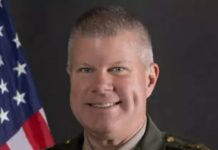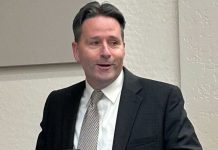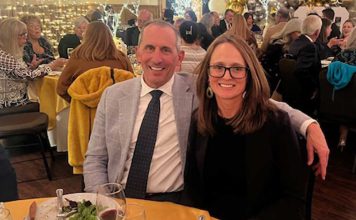Morgan Hill voters will decide whether or not to tax themselves
an additional 2 percent on utility bills that council members say
will be used for an additional seven sworn police officers and two
multi-service officers.
Morgan Hill voters will decide whether or not to tax themselves an additional 2 percent on utility bills that council members say will be used for an additional seven sworn police officers and two multi-service officers.
Morgan Hill City Council members voted unanimously July 2 to direct city staff to create a ballot measure that would put the tax, with a low-income exception, on the November ballot.
Council members will vote on the measure created by staff during their July 23 meeting.
Money raised by a general tax goes into the city’s general fund, while revenue from a specific tax is used for a predetermined purpose. Under Proposition 218, a specific tax requires voter approval in a two-thirds majority, while a general tax can be approved by a simple majority, one vote more, or 50.1 percent.
“I have a fundamental belief that a general tax is an important tool for democracy to work right,” said Councilmember Larry Carr. “A majority of people ought to be able to say what they want to do, rather than a minority.”
Council members have discussed, during a public safety workshop and town hall meetings, the benefits of asking voters to approve a general tax instead of a specific tax, while at the same time expressing their commitment to using the funds raised from the tax to fund the extra police and multi-service officers.
“We’ve been talking about this for 18 months, it’s been a very involved and in-depth decision on the council. I’ve been convinced that the need was there.’
Morgan Hill police Chief Bruce Cumming, who compiled an extensive report for the council’s Public Safety and Community Services committee and answered pages and pages of additional questions, said he was pleased with the council’s vote.
“I am especially pleased that the vote to put this on the ballot was unanimous,” he said. “That was great. The council is to be commended in that they really studied this issue hard. That they voted unanimously, 5-0, is very encouraging to me.”
Asked if he was concerned about the proposed tax being a general one, he said he had heard the council’s discussions on the two types of taxes and their intentions.
Although a revenue from a general tax can be used for other expenditures as approved by the council, the current council members have made it clear they would use the funds to pay for the additional officers.
“The council will make sure that those general tax funds go specifically for the purposes they are intended for, to bolster public safety services,” he said. “Obviously the council realized it would be difficult to pass with a two-thirds majority … In the discussions that have occurred during this whole inspection of the issue they’ve been consistently saying the same thing. They realize there’s a need for more police.”
Council members have said in public meetings that they would use the funds raised from the utility tax to pay for the additional officers, but they believe a specific tax would be more difficult to pass. Future councils could use the revenue from the tax for other general fund expenditures, but current council members say since that would mean a cutback in services and personnel, that they would hope future councils would continue to focus the money on officers.














